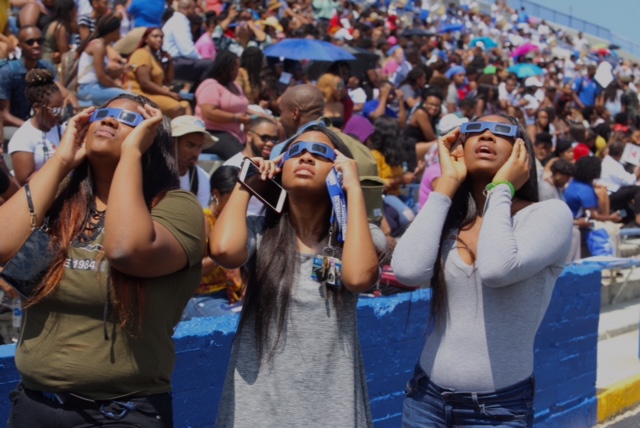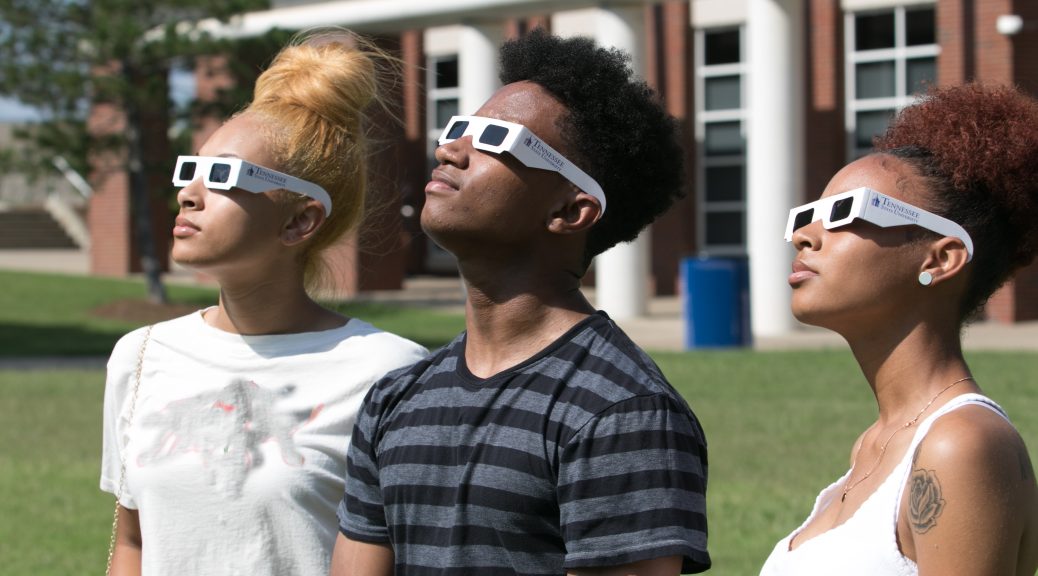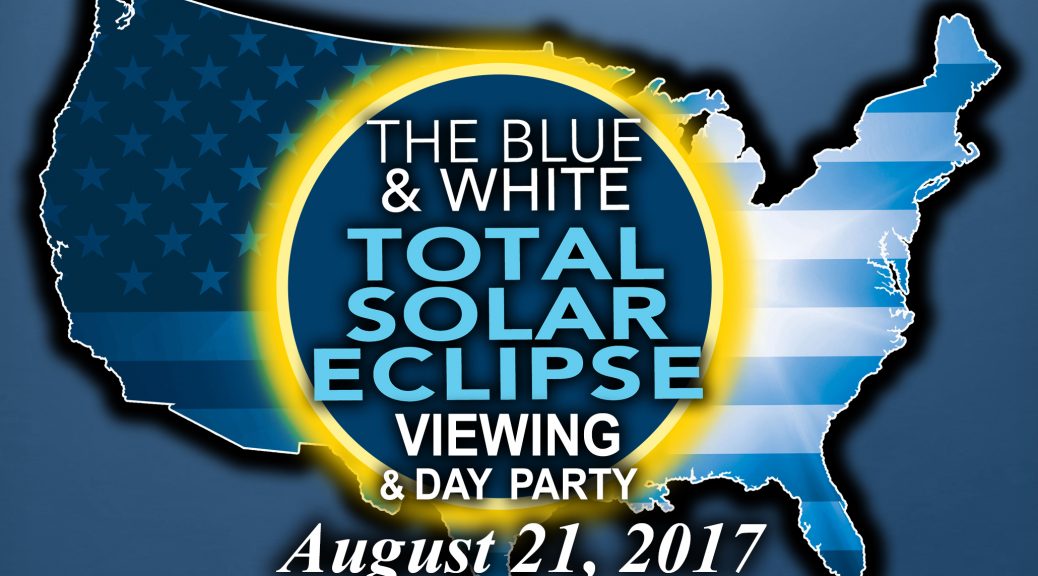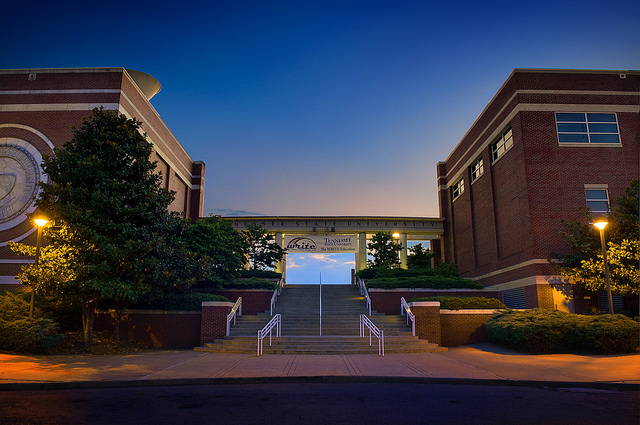NASHVILLE, Tenn. (TSU News Service) – Hundreds of people came to Tennessee State University on Monday to view the total solar eclipse, a historic event most will never forget.

“This is monumental,” TSU President Glenda Glover told the crowd minutes before the sun was blacked out. “Years from now, you will recall this very moment here at TSU.”
The university had viewing events at Hale Stadium on TSU’s main campus, and at Avon Williams, the university’s downtown campus. However, the event at the stadium was undoubtedly the liveliest, with TSU’s Aristocrat of Bands entertaining attendees before the total eclipse. There was also a live DJ, as well as food.
“Tennessee State University values community partnerships,” said TSU Dean of Students Frank Stevenson. “Blue and White Solar Eclipse Day was designed to … have a safe, exciting place where we can view this once-in-a-lifetime opportunity together.”

The last time a total solar eclipse could be seen from Nashville was July 29, 1478, according to NASA. After the one Monday, the next total solar eclipse visible from Nashville will be on Aug. 16, 2566.
Dr. Virginia Tickles, a NASA engineer, was one of the speakers at the stadium. She said before the event that the eclipse is a great educational tool.
“I remember being in school and learning about this,” she said. “It’s exciting to see what we learn in day-to-day classrooms happen right here in front of us.”
Dr. Geoffrey Burks, an astronomer and associate professor of physics at TSU, said he believes the solar eclipse will spark new interest in astronomy.
“It’s just so rare to be able to see something in your lifetime where the sun is covered up in the middle of the day,” he said. “They’ll remember this a long time.”

TSU sophomore Taylor Adams, a mechanical engineering major, said the eclipse is an experience she will not forget, and that it has definitely made her even more interested in astronomy.
“This is something that scientifically blows your mind,” Adams said. “You’re literally watching the moon fully cover the sun.”
During a solar eclipse, the moon passes between the sun and Earth and blocks all or part of the sun for up to about three hours, from beginning to end, as viewed from a given location.
In Nashville, the eclipse’s totality, the period when the sun is completely blacked out by the moon, lasted about two minutes. When totality occurred, the stadium erupted with cheers, and people who didn’t know each other were hugging and laughing.
While he enjoyed seeing the eclipse, TSU student Alex Hill said the effect it had on people who witnessed it was even more moving.
“I believe that this gives people a chance to take a step back and look at the bigger picture,” said Hill, a junior majoring in business administration. “No matter our race or ethnicity, we all live under the same sun and moon, and should treat each other as such.”
Department of Media Relations
Tennessee State University
3500 John Merritt Boulevard
Nashville, Tennessee 37209
615.963.5331
About Tennessee State University
With more than 9,000 students, Tennessee State University is Nashville’s only public university, and is a comprehensive, urban, co-educational, land-grant university offering 38 bachelor’s degree programs, 25 master’s degree programs and seven doctoral degrees. TSU has earned a top 20 ranking for Historically Black Colleges and Universities according to U.S. News and World Report, and rated as one of the top universities in the country by Washington Monthly for social mobility, research and community service. Founded in 1912, Tennessee State University celebrated 100 years in Nashville during 2012. Visit the University online at tnstate.edu.




